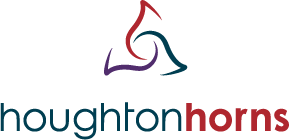So you want to start teaching private lessons but aren’t sure what to do? Every teacher and situation is different, so these tips are not meant to be “rules,” just things to consider. These observations are based on my experience as a young private teacher with 72 students in the Dallas/Fort Worth area and may not be applicable to your specific situation. Here are some things I wish I had known before diving headfirst into full-time teaching!
Tip #1: Getting Started
Be proactive! Reach out to band or program directors in your area. You never know if there is a need in your area for someone with your knowledge and skills. You also need to know your availability before scheduling students or schools. You need to decide if you only want to teach private lessons or are open to masterclasses and sectionals. Are you willing or able to work before or after school? Weekends? These are all good things to establish before you have even one student.
Tip #2: Scheduling
Scheduling your students is one of the most difficult and important tasks that takes place before you start. You should try to set up your schedule in a way that is most beneficial to you. If you plan on being on multiple campuses daily, you need to be aware of the drive time and differing bell schedules. There is generally no help available when setting up your schedule. If you have found yourself with many students, ask if they are willing to have before or after-school lessons.
Tip #3: Managing Money
You are solely responsible for getting paid. You will need to decide if you want to use an invoicing system or if you will just keep track on your own. Most of the time, you will need to plan for tax season. Are you subject to state income taxes and or/federal income taxes? You do not want to be blindsided in April. In my experience, I had about an 85% attendance rate that I could count on, so I based my budgeting on those numbers. You may want to set up an LLC (I never did this, but I considered it multiple times). If your school or district offers lessons with a scholarship, you will likely be responsible for some paperwork. If you want to get paid, keep track of every lesson! It is good to establish expectations for payment. Some teachers like to be paid in advance, some paid weekly, and some paid at the end of a month. Decide what works best for you, but be aware that some families may need flexible payment options.
Tip #4: “Curriculum”
Some programs may have some guidelines in place for what the expectations of their private teachers will be. Some will not. It is a good idea to communicate with directors about what they want from you and their students. You are an “expert”. You should teach things you know are important while also understanding that programs have objectives their students are responsible for upholding. Band directors often have limited knowledge of instruments that are not their primary (especially horn). Use your knowledge and expertise to your advantage! Be useful! I try to have my students at the same school working on similar things (fundamentals, warm-ups, etudes, etc.) so they can work together outside of lessons.
Tip #5: Time Management
Time management is crucial! If you only have 22 minutes (or whatever amount of time) a week with a student, you must make that time count! Be sure to schedule time for your own practice and development, to eat lunch, to use the restroom, etc. You will likely not have the luxury of time. You will need to be quick with your assessments and comments.
Tip #6: Student Relations
Know your audience! Students enroll in lessons for a multitude of reasons. The sooner you know their goals, the more effective your time together will be. If you are teaching almost every student in one section, you have a direct impact on the culture of that section. You likely will not “click” with all your students, which is okay.
Tip #7: Parent Relations
Communication is key! You must be able to communicate effectively with the parents/guardians of your students. It will be crucial for rescheduling lessons, setting expectations, and getting paid. Professionalism is a must. All correspondence should be appropriate and professional (especially if you bring up concerns). Some parents will be very hands-on, and some might only pay when you send them an invoice without any other communication.
Tip #8: Director Relations
Remember: you are a valuable asset to any program! Keep the lines of communication open with directors. They often like to be informed of what is going on with their students. Try to find the right balance of keeping them in the loop without being “annoying.” We are all on the same side!
Tip #9: Being a Musician
You are first a musician, then a teacher. You should lead by example. Your expectations for your students should be reasonable and obtainable. If you can’t do it, you shouldn’t require it of a middle or high-school-aged student. Remember that you are helping shape and form the next generation of musicians and teachers; your role is very important!
Tip #10: Being a Teacher
You still play your instrument for a reason. Consider sharing that reason with your students. You are a direct role model for them. What do you want to demonstrate? Try to remember what it was like for you when you were your students’ age. Be the sort of teacher that you would have needed. Most musicians have a season in which they are teaching others. You get to decide the depth and the length that you teach. You also get to decide the quality of what you are putting out into the world. What kind of impact do you want to leave on a student?
Disclaimer: This is by no means a definitive or exhaustive list of tips for teaching. Each teacher/student/program is unique and what worked for one person may not work for you.

